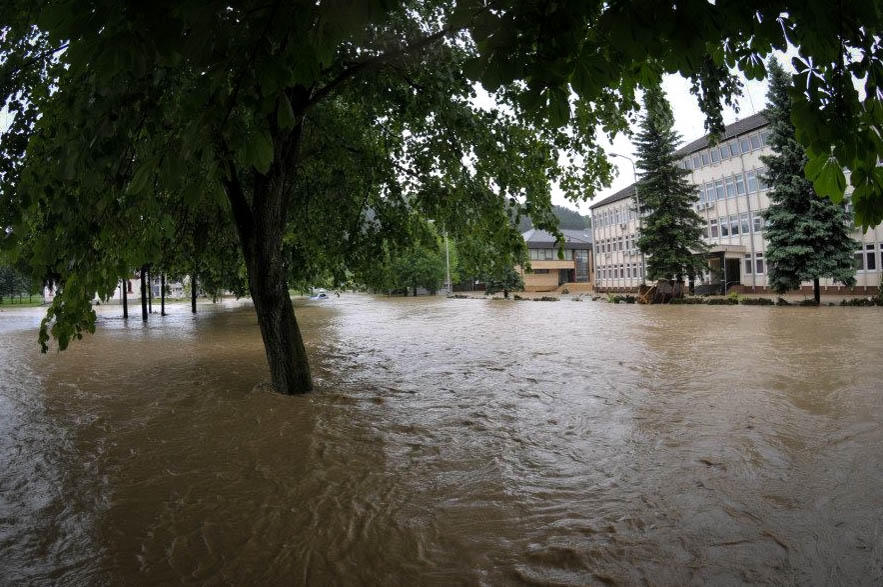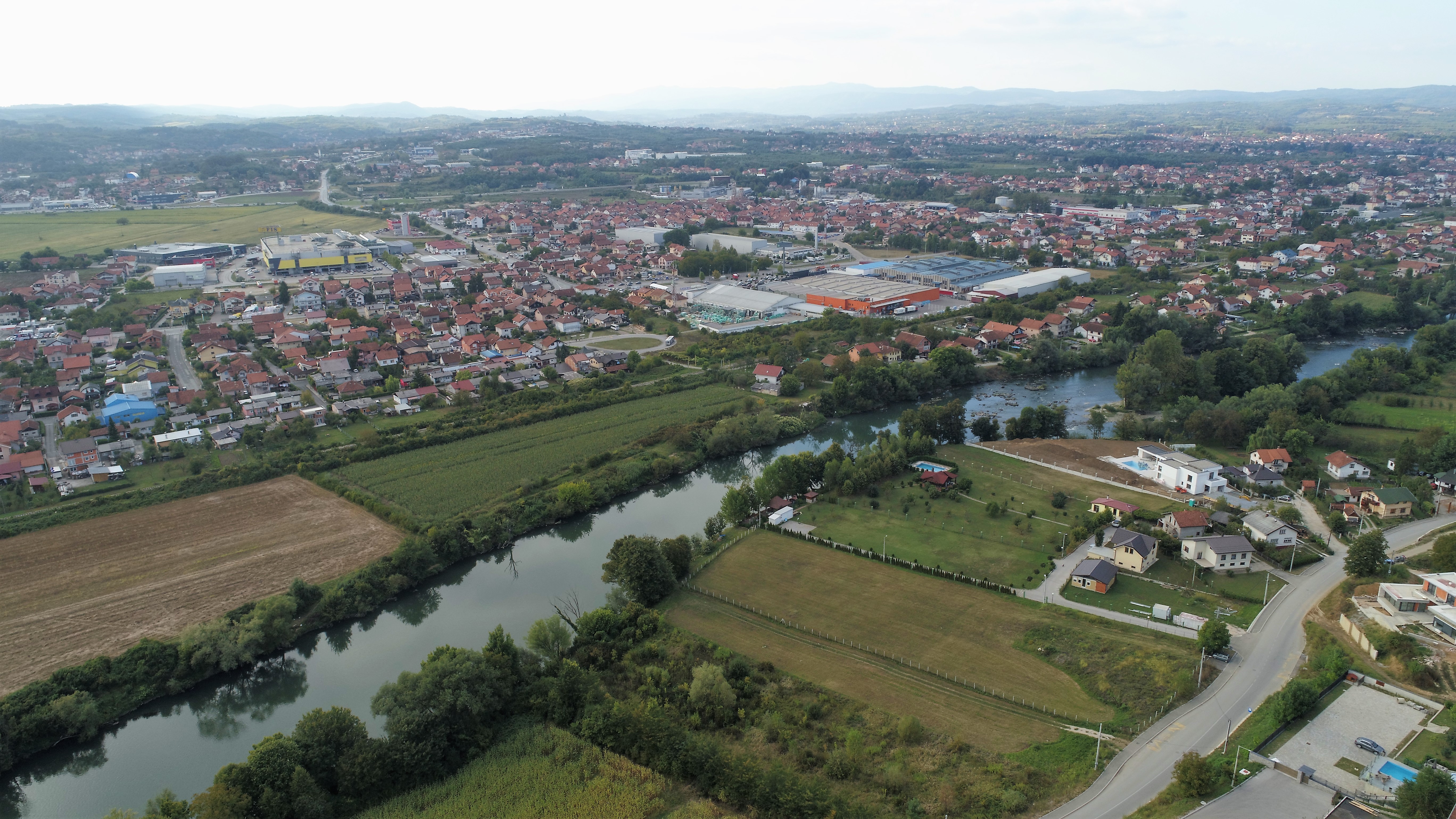Natural Solutions for Disaster Risk Reduction and Biodiversity Protection in BiH: Educating Policymakers and Restoring Vital Ecosystems
Natural Solutions
August 6, 2024

Tišina, BiH
Climate Action Academy
The Climate Action Academy by UNDP in Bosnia and Herzegovina (BiH) is a novel initiative aimed at empowering policymakers with practical knowledge on climate topics to be able to undertake necessary action. For the second consecutive year, this Academy brings together policymakers from all levels, transcending political differences to work towards the greater good of all citizens.
“I welcome the activities by which, for the second year in a row, the Academy unites policy makers from different levels of government, overcoming political differences to work together for the benefit of all citizens. The Academy encourages informed decision-making and promotes a unique approach to climate action, ultimately contributing to the sustainable future of Bosnia and Herzegovina,” Saša Magazinović, Chairman of the Green Club of BiH (an inter-parliamentary body).
The Need for Climate Education and Collaboration
Climate change presents one of the most significant challenges of our time, requiring urgent and coordinated action. In BiH, the United Nations Development Programme (UNDP) is taking proactive steps to engage and educate policymakers, as well as to foster collaboration and practical solutions through innovative initiatives like the Climate Action Academy. The novel approach of the Academy showcases UNDP’s comprehensive methodology in implementing Disaster Risk Reduction (DRR) and Biodiversity Protection in BiH.
Highlighting the Synergy
The Academy consists of three intensive modules, each addressing different aspects of climate action. The first module focused on energy and the need for innovative financial mechanisms. The 2nd module was delivered on June 28th, titled ‘Natural Solutions for Disaster Risk Reduction and Biodiversity Protection in BiH,’ and highlighted the synergy between the Joint Programme ‘Disaster Risk Reduction for Sustainable Development in Bosnia and Herzegovina’ and the GEF-funded ‘Sustainability of Protected Areas – SPA’ project.
“By harmonizing our efforts, we can ensure that our strategies for disaster risk reduction and biodiversity protection are not only effective but also sustainable in the long term, which exemplifies how integrated efforts can lead to sustainable development.” - Senka Mutabdžija Bećirović, SPA Project Manager, UNDP in BiH
"Promoting synergy between disaster risk reduction and biodiversity conservation is crucial for building resilient ecosystems and communities,” averred Vedran Ibrulj, Joint DRR Programme Coordinator, UNDP in BiH.
Participants gain clearer insights into flood management, habitat restoration, and nature-based solutions. They are also able to explore granular project activities, digital hazard and risk maps (DRAS), legal and institutional frameworks, and alignment with international and EU regulations.
The third and final module, scheduled for August 30th, will focus on hazardous substances and Eco-Justice, completing their comprehensive educational journey.

Flooding of government buildings in Čelinac, BiH, May 2014.
Exploring the Tišina Marsh: A Vital Ecosystem
The Tišina Marsh, nestled along the Sava River between the municipalities of Šamac and Domaljevac-Šamac, is a protected habitat undergoing significant restoration under the SPA project. Declared a protected nature area in 2019 and spanning nearly 200 hectares, Tišina is a crucial hydrological stabilizer and flood protector, home to a rich diversity of plant and animal species.
Tišina’s unique geological and hydrological features support 236 plant species, 130 bird species, 21 fish species, eight amphibian species, and four reptile species. Several species are endangered at the European level and protected by international conventions. The area is proposed as a Natura 2000 site due to the presence of six endangered habitat types. Through its restoration activities, the SPA Project strives to provide hydrological solutions as a means of supporting habitat conservation and physical/chemical features favourable to the establishment of target populations of endangered species. The restoration plan will include hydrotechnical measures (including nature-based solutions) to achieve better control over local hydrological features, with significant local community involvement and due consideration of biodiversity stability and preservation. Set for completion by the end of 2024, this initiative is the first of its kind in Bosnia and Herzegovina. The restoration of Tišina marsh is not just about preserving a vital ecosystem, it’s about creating a sustainable future for the local community and the country as a whole.
“The Tišina marsh restoration is a prime example of how nature-based solutions can mitigate environmental risks while preserving biodiversity. It’s a model that can be replicated across the region,” notes Vedrana Mihaljčić, Head of the Department for Spatial Planning and Housing and Communal Affairs of Šamac municipality.

Tišina, BiH
Lessons from the 2014 Floods: Reflecting on Past Challenges
Participants also gain insights into the devastating floods of 2014, with a starting point in one of the most affected cities, Doboj. The curriculum also covers recovery efforts led by UNDP - with significant support from the EU - emphasizing the importance of effective flood management and prevention strategies.
“The lessons learned from the 2014 devastating floods highlighted the urgent need for effective flood management and prevention strategies. By learning from past challenges and using integrated water-management approach with combination of structural and non-structural measures, we can build a more resilient future for Bosnia and Herzegovina. Effective disaster risk reduction requires multi-sectoral approach and collaboration at all levels. By working together, we can build resilience and protect our communities from future disasters.” - Goran Bosankić, Chief Technical Officer in the Joint DRR Programme, UNDP in BiH.

A Vision for a Sustainable Future
The Climate Action Academy and the restoration of the Tišina Marsh exemplify the collaborative and comprehensive approach needed to foster a sustainable and resilient future. Through education, practical solutions, and community involvement, UNDP is takes proactive steps in addressing climate change and environmental challenges in BiH.

Participants gain clearer insights into flood management, habitat restoration, and nature-based solutions.

 Locations
Locations











